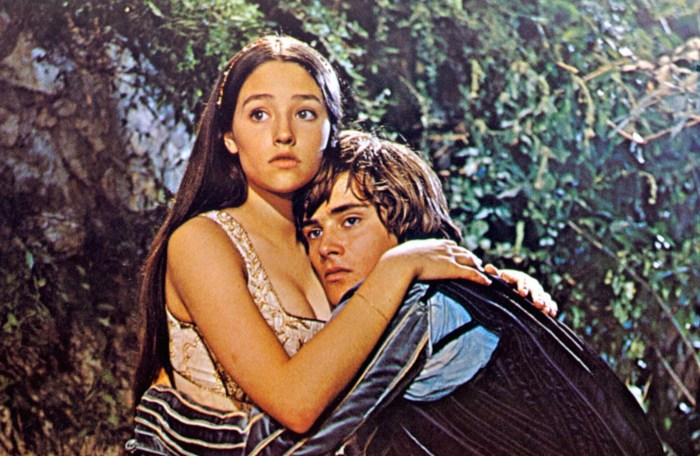Delve into the timeless tale of love and loss with the Obituary of Romeo and Juliet, a profound literary masterpiece that has captivated audiences for centuries. From its historical significance to its enduring popularity, this play’s tragic narrative continues to resonate with readers and theatergoers alike.
Exploring the play’s key themes, motifs, and characters, this comprehensive analysis delves into the complexities of love, family, and fate. We’ll examine the societal norms and expectations that shape the events of Romeo and Juliet, and trace the evolution of this beloved story from its original performance to its countless adaptations.
Contextual Overview

Set against the backdrop of Renaissance Italy, Romeo and Juliet is a timeless tale of forbidden love, tragic consequences, and the enduring power of passion. Written by William Shakespeare in the late 16th century, the play has captured the hearts and minds of audiences for centuries, becoming one of the most iconic and beloved works of literature.
Romeo and Juliet’s enduring popularity stems from its universal themes of love, loss, and the clash between societal expectations and individual desires. The play’s vivid characters, poetic language, and tragic plot have resonated with generations of readers and theatergoers, inspiring countless adaptations, interpretations, and cultural references.
Historical and Cultural Significance
Romeo and Juliet was written during a period of great social and cultural change in England. The Renaissance saw a renewed interest in classical literature, art, and philosophy, which influenced Shakespeare’s writing. The play’s depiction of the conflict between the Montagues and Capulets reflects the political and religious tensions of the time.
Moreover, Romeo and Juliet’s exploration of love and marriage challenged traditional societal norms. The play’s portrayal of a young couple defying their families’ wishes and seeking their own happiness was revolutionary for its time and continues to resonate with audiences today.
Impact on Literature and Popular Culture
Romeo and Juliet has had a profound impact on literature and popular culture. The play’s tragic love story has inspired countless other works of art, including novels, poems, operas, and films. Its characters and themes have become cultural touchstones, referenced in everything from music to advertising.
Romeo and Juliet has also played a significant role in the development of the English language. The play’s lyrical language and memorable phrases have enriched our vocabulary and continue to be quoted and referenced in everyday speech.
Literary Analysis

Romeo and Juliet’s tragic tale has resonated with readers for centuries, capturing the essence of youthful passion and the devastating consequences of societal pressures. The obituary offers a poignant reflection on the key themes and motifs that drive the play’s central message, employing evocative language, imagery, and symbolism to convey the characters’ motivations and relationships.
Key Themes and Motifs
At the heart of Romeo and Juliet lies the theme of star-crossed love, a force that transcends human will and leads to inevitable tragedy. The imagery of the stars and the prologue’s fateful prophecy foreshadow the lovers’ doomed destiny, highlighting the power of fate and the futility of resistance.
Language and Imagery
Shakespeare’s masterful use of language and imagery creates a vivid and emotionally charged world. The lovers’ passionate speeches are filled with metaphors and similes that evoke the intensity of their love, while the contrasting language of the feuding families emphasizes the division and hatred that surrounds them.
Characterization of Romeo and Juliet, Obituary of romeo and juliet
Romeo and Juliet are complex and relatable characters whose motivations and relationships drive the play’s tragic arc. Romeo, a passionate and impulsive youth, is torn between his love for Juliet and his loyalty to his family. Juliet, a strong-willed and independent woman, defies societal norms to pursue her heart’s desire.
Their love for each other is genuine and unwavering, but it is ultimately doomed by the forces that surround them.
Social and Historical Context

The world of Romeo and Juliet is shaped by the rigid societal norms and expectations of their time. These norms govern every aspect of their lives, from their relationships to their choices.
One of the most important societal norms in the play is the importance of family. Families are the cornerstone of society, and their honor is of utmost importance. Any slight against a family can lead to a deadly feud.
The star-crossed lovers, Romeo and Juliet, met their tragic end in a timeless tale of love and loss. Their obituary, a testament to their enduring legacy, reminds us of the fragility of life and the power of emotions. If you’re interested in exploring the diverse ecosystems of North America, I recommend checking out this biomes of North America PDF . It provides a comprehensive overview of the region’s various biomes, from the lush forests of the Pacific Northwest to the arid deserts of the Southwest.
Returning to Romeo and Juliet, their love story continues to captivate audiences, serving as a poignant reminder of the enduring power of the human spirit.
Role of Family
- Families are the foundation of society and their honor is paramount.
- Any insult or offense against a family can lead to a feud, often resulting in violence and bloodshed.
- The Montagues and Capulets are two feuding families, and their rivalry is a major driving force in the play.
Role of Love
Another important societal norm in the play is the importance of love. Love is seen as a powerful force that can overcome all obstacles. However, in the world of Romeo and Juliet, love is often forbidden. The Montagues and Capulets are sworn enemies, and their children are forbidden from loving each other.
- Love is a powerful force that can overcome all obstacles, but it is often forbidden in the play.
- Romeo and Juliet’s love is forbidden because their families are sworn enemies.
- Their love leads to their tragic deaths.
Role of Honor
Finally, the concept of honor is also very important in the play. Honor is a code of conduct that governs a person’s behavior. It is considered to be more important than life itself. In the world of Romeo and Juliet, honor is often associated with violence and revenge.
- Honor is a code of conduct that governs a person’s behavior.
- It is considered to be more important than life itself.
- In the world of Romeo and Juliet, honor is often associated with violence and revenge.
These societal norms and expectations play a major role in the tragic outcome of Romeo and Juliet. The Montagues and Capulets’ feud, the forbidden love between Romeo and Juliet, and the importance of honor all contribute to their deaths.
Legacy and Impact

Romeo and Juliet’s tragic love story has resonated with audiences for centuries, inspiring countless adaptations, interpretations, and artistic creations.
Evolution of the Story
From its initial performance in the late 16th century, the play has undergone various adaptations, including:
- Early modern adaptations that expanded or altered the plot and characters.
- 19th-century adaptations that emphasized the play’s romantic elements.
- 20th-century adaptations that explored the play’s social and political themes.
Influence on Other Works
Romeo and Juliet’s themes and characters have had a profound influence on other works of art, including:
- Literature:Novels such as “West Side Story” and “Wuthering Heights” echo the play’s themes of star-crossed love and societal conflict.
- Art:Paintings by artists like Eugène Delacroix and John Everett Millais have captured the play’s dramatic moments and emotional intensity.
- Music:Opera composers like Vincenzo Bellini and Charles Gounod have created operas based on the play’s story, highlighting its musicality and emotional depth.
Enduring Relevance
Despite its historical setting, Romeo and Juliet’s themes remain relevant in contemporary society, resonating with audiences of all ages:
- Forbidden Love:The play explores the challenges and consequences of love that defies societal norms, a theme that continues to resonate in modern-day relationships.
- Teenage Rebellion:Romeo and Juliet’s defiance of their families’ wishes mirrors the struggles and identity formation of teenagers today.
- The Power of Fate:The play’s tragic ending raises questions about the role of fate and free will, a topic that continues to fascinate and perplex people.
FAQ Overview: Obituary Of Romeo And Juliet
What is the significance of the Obituary of Romeo and Juliet?
The Obituary of Romeo and Juliet is a literary analysis that explores the play’s key themes, motifs, characters, and social context, providing a comprehensive understanding of this timeless masterpiece.
How has Romeo and Juliet influenced other works of art and literature?
Romeo and Juliet has had a profound impact on Western culture, inspiring countless adaptations, including plays, operas, ballets, and films. Its themes of love, loss, and fate continue to resonate with audiences today.